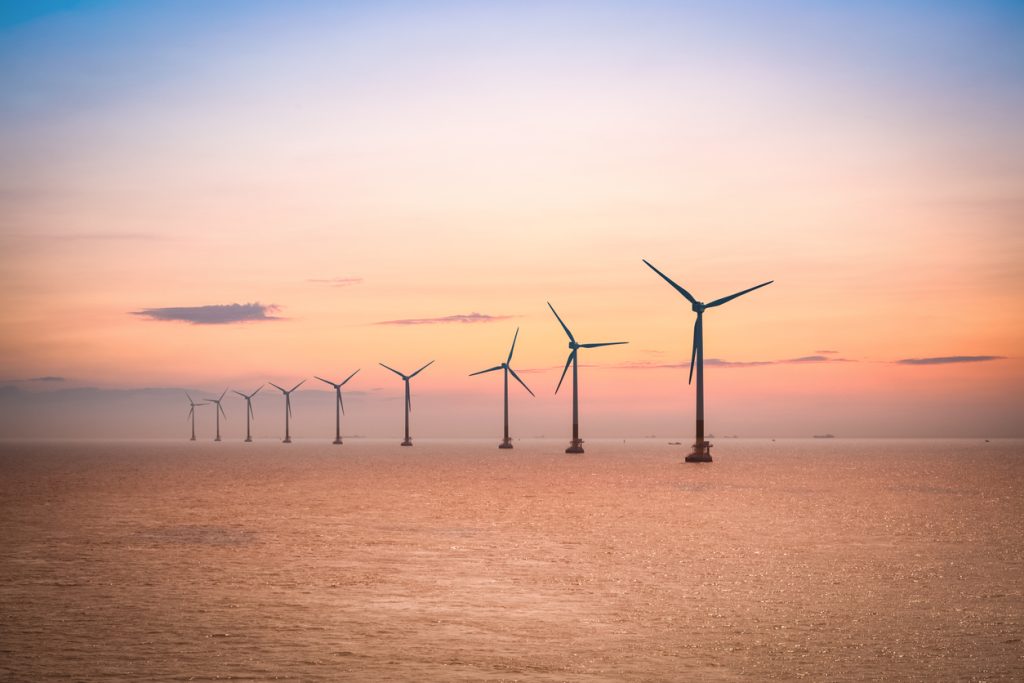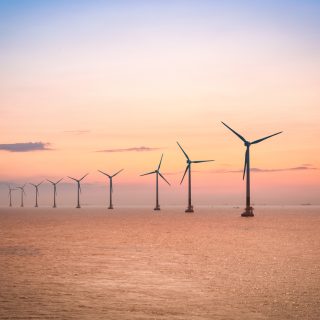Back at the end of last year Reed Smith hosted a fantastic virtual event looking at the future of energy. One of our Lawbore journalists, Naghmeh, was there to report back! [Ed. note – forgive the delayed posting!]

Energy is the lifeblood of any civilisation but with a growing population, it’s becoming increasingly important to find sustainable and accessible sources. The future of energy is a multifaceted issue that has captured the attention of policymakers, industry leaders, and individuals alike. As the shift towards decarbonisation gains momentum, lawyers are playing an increasingly important role in guiding their clients who are responsible for driving the transition. On November 28th, 2022, Reed Smith, a globally recognised law firm, held a virtual event called “The Future of Energy”. It was accessible through the Future Lawyers Hub to students and graduates, featuring partners Richard Ceeney and Brett Hillis and senior associate Wei Wei. The initial discussion on sustainable energy was sparked by the pressing geopolitical challenges of our time, notably the Ukraine crisis.
Has the Ukraine crisis highlighted the importance of sustainable energy?
Richard Ceeney emphasised the pivotal role of sustainable energy in the aftermath of the Ukraine crisis. Europe’s reliance on oil and gas from undependable countries, coupled with Russia’s ability to disrupt the energy supply, has become unsustainable. This realisation has spurred a shift towards sustainable energy sources like nuclear, wind, solar, and wave energy, which are more reliable for energy security and supply. The crisis has also disrupted energy companies’ operations in Ukraine, underscoring the need for diversifying energy sources and adopting sustainable options. Consequently, sustainable energy has gained prominence as a crucial component of future energy policies, with nations and companies urged to adopt more sustainable and long-term strategies.
How might a global recession affect businesses’ ability to achieve their net-zero targets, and will they prioritise profits over sustainability goals, particularly in the short term?

Despite a recession’s anticipated decrease in investments and spending, the global energy crisis has made green energy a critical investment. Richard Ceeney emphasised that clients want to distinguish themselves based on their green credentials, and consumers and businesses are demanding sustainable practices.
Energy lawyers are collaborating with clients to meet the demand for green initiatives and ensure long-term energy security. Thus, a global recession is unlikely to significantly impact businesses’ ability to reach their net-zero goals, and it is unlikely that businesses will prioritise profits over sustainability due to growing pressure from consumers and the increasing importance of sustainability. Richard Ceeney’s remarks highlighted that sustainability is a priority for businesses, even in times of economic uncertainty.
With greater pressure placed on businesses to be more sustainable, are you witnessing a rise in so-called ‘greenwashing’? What role do lawyers play in reducing this?
According to Brett Hillis, organisations are becoming more cautious with their environmental claims due to new regulations and potential litigation risks linked with greenwashing. Lawyers play a role in reducing greenwashing by guaranteeing their clients are truthful and transparent with their sustainability claims. Lawyers can also guide clients in complying with the complex regulations on sustainability claims and offer advice on measuring and reporting sustainability activities accurately. However, clients are responsible for determining their strategies to achieve their sustainability goals.
Due to the UK’s dependency on energy imports, do you foresee greater investment in things like nuclear and offshore wind power?

The panellists expect to see a rise in energy supply points, including nuclear and offshore wind power. However, they noted that the potential for growth is not limited to these two sources and mentioned the potential for onshore wind and solar power. The UK previously halted onshore wind projects due to aesthetic concerns, but there is now political pressure within the Conservative Party to lift the ban. The panellists expect that as technology continues to improve, there will be even more opportunities for solar energy. Despite the possibility of a recession, it is believed that there are still logical areas for growth in the energy sector, and investments in these areas will continue.
What will be the dominant source of UK energy in 2030?
The panellists concurred that wind, nuclear, solar, and gas will be pivotal in shaping the UK’s energy landscape in 2030. Brett Hillis notes that while building new nuclear power stations in the UK is a complex process, wind energy may provide a more viable option as wind projects can be completed within eight years. However, to make wind energy more reliable, storage issues need to be addressed. Although solar energy has been widely adopted in the UK, advancements in technology may offer more opportunities for solar to make a greater contribution. While gas remains a vital energy source, reducing dependence on fossil fuels is necessary to meet the country’s emissions reduction goals.
COP 27 has been described by some as a “missed opportunity” in terms of addressing fossil fuel usage. What are the panel’s views on this and the outcomes of COP27 generally?

Brett Hillis acknowledged that COP conferences, including COP27, may not have adequately addressed environmental issues, as international agreements on contentious issues are difficult to achieve, especially when countries’ interests are not fully aligned. Nonetheless, he highlighted the progress made and the potential for improvement. He suggested that smaller groups of countries, such as the European Union, may take the lead in setting sustainability requirements and developing incentive schemes. Despite some viewing COP27 as a missed opportunity, its progress should be considered a positive step forward.
How aligned do you have to be in Governmental changes on energy issues? (e.g fracking)
Richard Ceeney notes that alignment with governmental changes on energy issues varies by sector and project. Clients in his sector inform and lobby them about behind-the-scenes developments in energy policy. However, changes in government policies can impact their ventures, which take several years to complete, making it difficult to predict. For example, US wind developers closely monitor the annual renewal of tax credits to determine future financial incentives for green energy projects. In the UK, changes in energy policy tend to be stable, and fracking is unlikely to have a significant impact on their work.
What is the most memorable energy matter/deal you’ve worked on?
Richard Ceeney shared that he worked on many energy deals, but the most memorable was an offshore wind deal in the German North Sea. This was because he was acting for developers buying wind turbines from an integral manufacturer, which was not his usual role.
Brett Hillis is proud of his work on Europe’s first Emissions Trading Product, which incentivised people to reduce their carbon emissions by allowing them to invest in EU Emissions allowances.
Wei Wei’s most memorable deal was an onshore gas acquisition in Mozambique. As a junior lawyer, she negotiated the joint development agreement and impressed her client enough to meet with the chairman of the IMP to explain the amendment to the underlying petroleum contracts. Wei Wei also mentioned the Green Ammonia project, which aims to generate clean and carbon-neutral ammonia using renewable resources. To achieve net-zero emissions, Wei Wei is currently working with the client to develop new technologies and secure the first-ever offtake agreement for green ammonia to enter Europe. This involves guiding the client through regulatory and commercial uncertainties and including legal language to safeguard their interests.
Concluding Remarks
As the curtains closed on the virtual event, I reflected on the insightful perspectives shared by the panellists regarding the future of the energy industry. It became apparent that the industry was at a pivotal juncture; it was a moment that demanded a collaborative and multi-disciplinary approach to tackle the pressing challenges facing the world. One notable takeaway that resonated with me was that legal professionals have a vital role to play in formulating inventive solutions and propelling sustainable transformation.

The future of energy is a complex and captivating subject, and we must embrace it with innovative and comprehensive approaches to address the world’s growing energy demands while mitigating their adverse ecological impacts. I walked away from this event feeling inspired and motivated to continue learning and adapting. Let us collaborate towards a better tomorrow, where clean energy powers our world and preserves our planet.
Naghmeh H.M Shahi is a third year LLB Law student at The City Law School. She is an aspiring solicitor with a keen interest in Commercial law. In terms of her literary work, she likes to focus on advocacy and public interest projects that take human interests into consideration, make a call to action, and open doors to constructive discourse.

